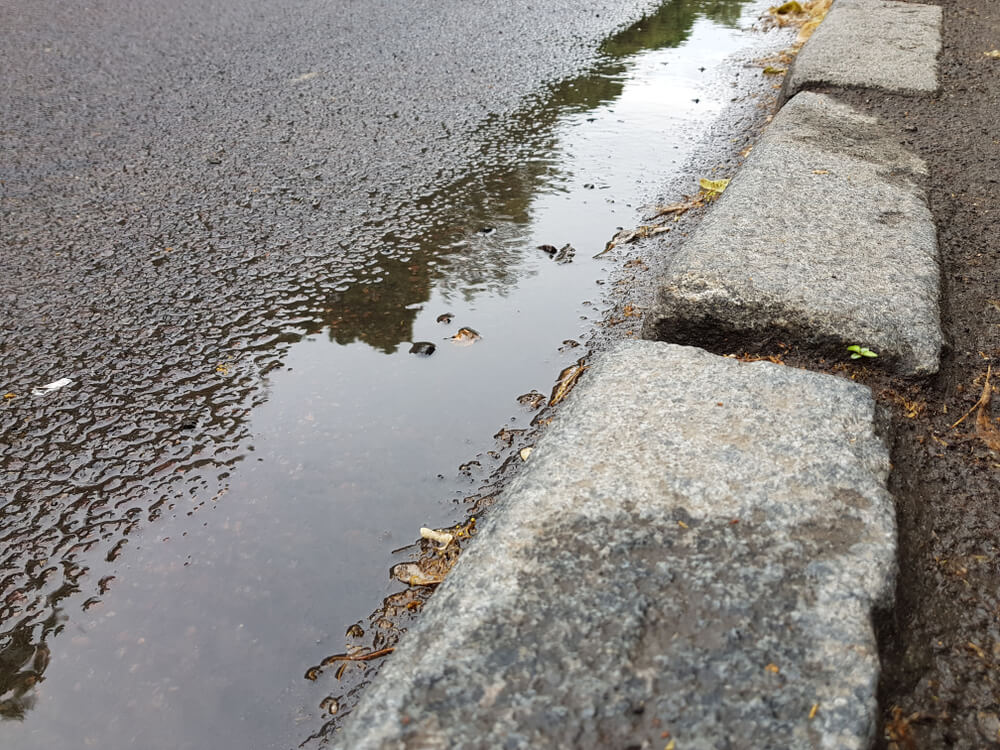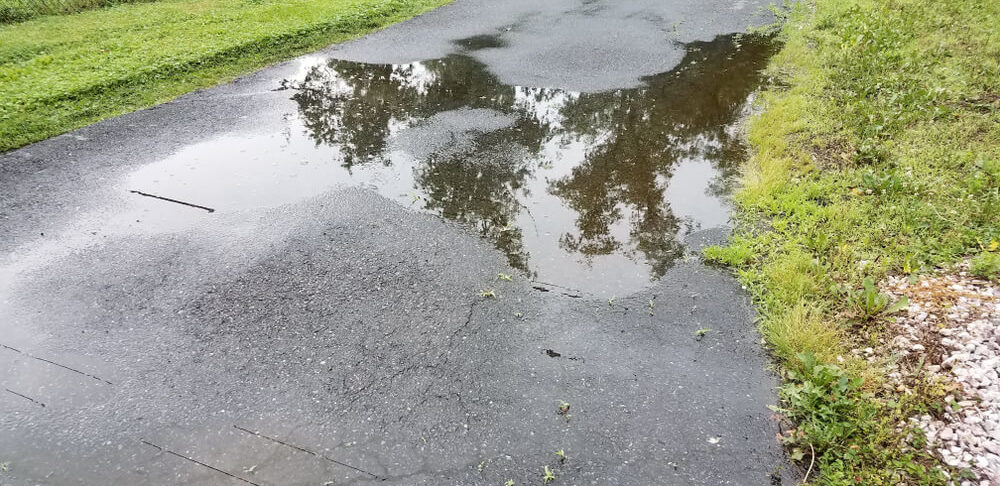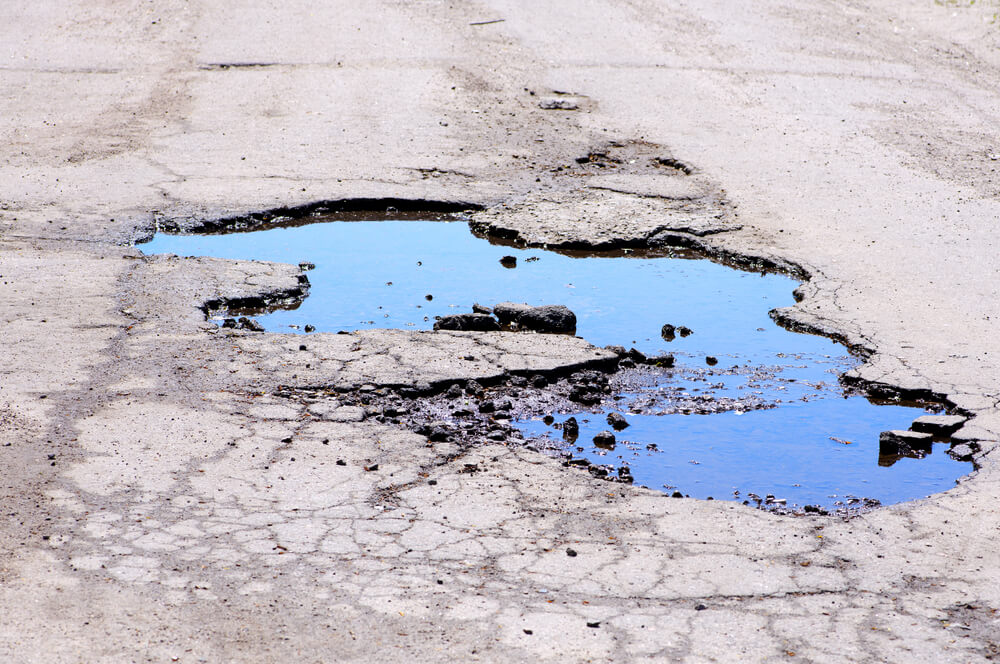Standing water on driveways can be problematic for homeowners. Not only is it visually unappealing, but it also leads to the destruction of the driveway. Before dealing with standing water on your driveway, you must understand the causes to implement practical solutions.
Understanding the cause of the standing water will enable you to weigh on the best option to deal with the situation. Addressing the issue is crucial to maintaining the functionality and longevity of your driveway.
We have put together a guide on the probable causes of standing water, and how to effectively deal with it on your driveway.
Identify the Cause
Identifying the cause of pooling on your driveway is the first step toward finding a long-term solution. Numerous factors can contribute to standing water on driveways, including:
- Poor drainage
- Blocked gutters
- Surface imperfections
- And more
Poor drainage could be due to the need for a proper driveway gradient. If your driveway slope does not lead water away, the water can accumulate around the driveway. On the other hand, blocked gutters could arise from clogging by leaves or sediments. Instead of driving water away, it stands on your driveway.
Surface imperfections can also cause pooling on your driveway. These imperfections could be low spots on the driveway or cracks. These irregularities can create areas where unwanted water collects.
The material used on your driveway can also lead to standing water. Materials like asphalt or concrete do not allow water to seep through. The impermeability can lead to water accumulating on the surface.
Assessing the cause of the pooling of your driveway will lead you to take the right course of action. Additionally, you will develop a strategy from the assessment that will deal with and prevent future issues.
Problems Caused by Standing Water
Standing water on your driveway can cause various problems. Here are three common issues pooling on your driveway can cause.
1. Safety Hazard
Standing water creates a slip-and-fall risk, especially when the water remains on the driveway for a long time – or during colder months. Moreover, it can fill and block pothole visibility, thus increasing the probability of accidents.
2. Damage to the Surface
Extended exposure to standing water on your driveway may damage the surface. Water can seep into cracks, and the anomalous water expansion causes the cracks to expand further. The surface will eventually encounter extensive damage.
3. Mosquitos
Standing pools make a breeding ground for pests and mosquitos. This will ultimately create a health hazard to your home and surrounding neighbors.
How to Deal With Standing Pools
There are various ways to deal with pooling on your driveway. Some of the methods work as preventive and pooling solutions.
Clear Debris
Accumulated leaves, dirt, and other debris can hinder the natural flow of water. This will contribute to pooling on your driveway. You can clear the debris by raking the loose material. Starting on one end while paying attention to the edges will clear any debris that might hinder the natural flow of water.
Check the Driveway Gradient
When dealing with standing water on your driveway, checking the driveway slope is crucial. This will give you a general impression of why the water is not draining. Meanwhile, here is how to check for the gradient.
Take a tape measure and measure the distance from the ground to the flat top. A perfect slope should increase in depth as you move away from the house. This will enable the water to flow away from your home. In case the slope is not standard, you can implement corrective measures.
Install a French Drain
French drains are gravel trenches, which contain a perforated pipe that redirects water away from your driveway. A French drain will improve the drainage on your driveway, removing standing water. You can reach out to the experts at Richfield Concrete to discuss installation services.
Extend Downspouts
Downspouts are vertical pipes that carry water from your gutters to the ground. Extending these pipes is an excellent strategy for dealing with standing water. First, when water from your gutters hits the ground from a high height, it causes soil erosion. The eroded soil is carried towards the drainage, which may block the drainage system. Extending downspouts will prevent erosion and direct water away from your driveway.
Fill the Low Spots
Low areas on your driveway can fill up with water leading to standing water on your driveway. Leveling the depressions with the driveway material will improve drainage, as no water will fill the driveway. However, you should ensure the filling material cures before exposing it to water.
Create Channels
Creating channels on your driveway is an excellent method to improve drainage. These channels are pathways that direct water away from your driveway to the designated drainage area. Since a channel provides a defined path for water, water pooling on your driveway is less likely.
Improve Surface Permeability
Surface permeability is the ability of the surface to absorb and drain water. Using porous paving materials will allow water to seep through the ground, reducing standing water on your driveway.
Contact the Professionals at Richfield Concrete
Contacting the professionals at Richfield Concrete will leave you with a desirable driveway. A professional assessment will have you adopting the best-tailored solutions. Additionally, the professional service we offer ensures issues with standing water are fully resolved.
Put an End to Standing Water on Your Driveway

Standing water on your driveway can be a nuisance. However, there are different strategies to deal with the issue. By identifying the cause of pooling, you can improve the drainage situation on your driveway. To best assess the characteristics of your driveway and the best solution, you should reach out to the licensed professionals at Richfield Concrete. Not only will we inspect your driveway, but we will also address all possible root causes of pooling.
Your driveway can last many decades by taking proactive measures to implement appropriate solutions. Contact Richfield Concrete today for a free concrete driveway estimate.






